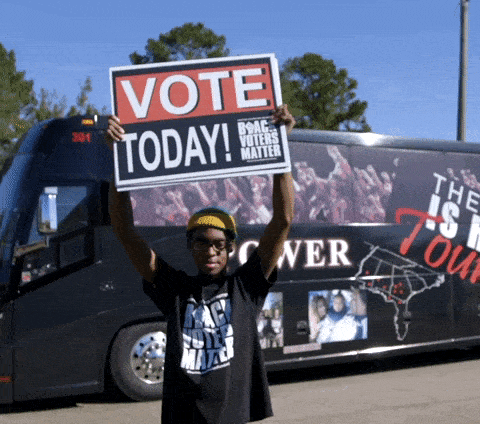- BlackVoter.Org
- Posts
- BLACKVOTER.ORG
BLACKVOTER.ORG

The political landscape in Alabama's District 2 is heating up as Vice President Kamala Harris steps into the spotlight following President Biden's exit from the presidential race. Her inclusion is expected to invigorate Democratic enthusiasm in a district where 52% of voters are African American and 55% are female.
Candidate Shomari Figures believes Harris's presence has sparked excitement that will translate into higher voter engagement. However, Republican opponent Caroleene Dobson challenges this notion, claiming Harris could rally her base as well, emphasizing a stark left-right divide in the election.
Ultimately, Figures insists the race will revolve more around his candidacy and Dobson's rather than the broader presidential contest. Whether Harris's impact will surge or fizzle remains a pivotal question for the November election.

With just two days remaining in Georgia's record-breaking early voting period, nearly 50% of registered voters—around 3.5 million people—have already cast their ballots.
This impressive turnout is making election officials optimistic about smoother operations on Election Day. Both Republican and Democratic strategies appear to be gaining traction, with GOP leaders noting strong engagement in rural areas, while Democrats are buoyed by high female voter participation.
Amid looming legal battles surrounding election integrity, officials are prepared to handle any disputes post-election. As political heavyweights, including Eric Trump and Vice President Kamala Harris, make their final pitches in the state, Georgia remains a focal point in the lead-up to the 2024 presidential election, showcasing a vibrant and engaged electorate ready to make their voices heard.
/
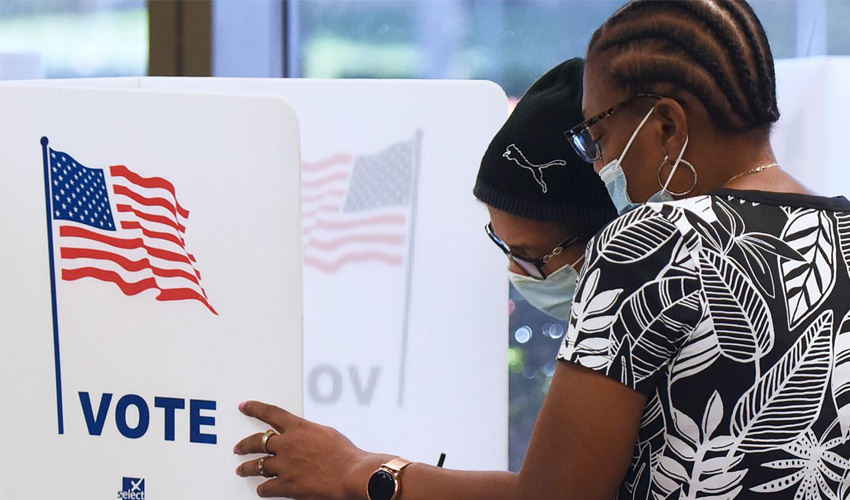
As the 2024 U.S.
presidential election approaches, a shift in Black voters' political loyalty is sparking debate. Traditionally a Democratic stronghold, new polls suggest a potential decline in support for Kamala Harris among Black voters, raising questions about their allegiance.
Some Black community members express interest in Donald Trump, citing economic concerns over cultural issues. Poll variances highlight a complex landscape, with differing approval ratings for Harris turning heads.
Cultural nuances and economic priorities play pivotal roles, especially among Black men, who may increasingly lean Republican. Despite these shifts, voters remain deeply connected to Democratic ideals on pivotal issues like healthcare and social justice.
As election day looms, both parties are expected to ramp up strategies to win over this critical demographic, but historical ties suggest that while feelings may fluctuate, loyalty to the Democratic Party is still deeply rooted. The evolving dynamics promise to add an intriguing twist to the upcoming election.
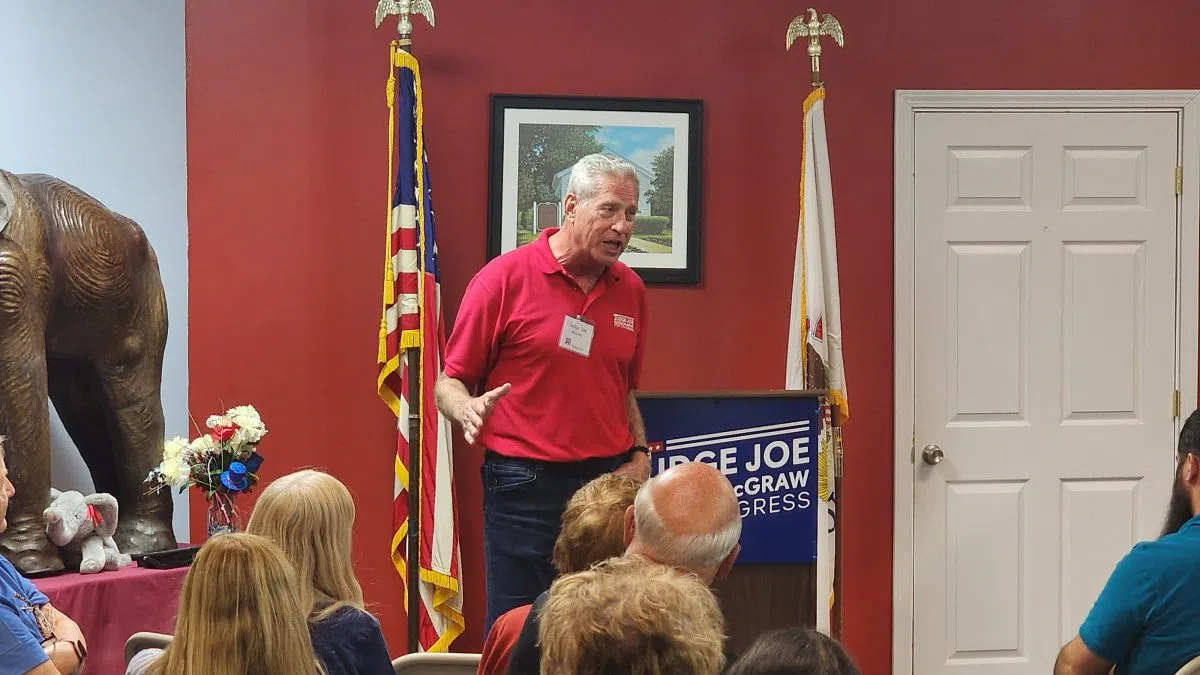
As Election Day approaches, Republican challenger Joe McGraw is making a decisive push to win over voters in Illinois' 17th Congressional District. At a recent rally hosted at the Peoria County GOP headquarters, McGraw spoke passionately to around 50 attendees, addressing key issues such as gun control, voter ID laws, and the economy.
With a campaign focused on inclusivity, McGraw is reaching out to traditionally Democratic voting blocs, believing that many voters are ready for change. Despite forecasts labeling the district as "Likely Democrat," McGraw remains optimistic, emphasizing that voters care more about character than party affiliation.
“People understand that I represent the working man and woman,” he asserts. With rallies lined up across the district in the final days, McGraw is determined to prove that party labels no longer dictate allegiances.
Early voting data from North Carolina reveals a concerning trend for Vice President Kamala Harris: Black voter turnout is lagging behind previous elections. Currently, only 18% of early votes are from Black voters, a drop from the 20% needed for Democrats to be competitive in the state.
In fact, nearly 36,000 fewer Black voters have cast their ballots compared to the same period in 2020. Democratic strategists stress that this gap must be closed for a successful campaign.
Former Rep. G.
K. Butterfield remains optimistic, suggesting a potential resurgence in turnout, as voting escalates in the final days before the election.
Meanwhile, Harris's support among Black voters has dipped to 78% from 90% for President Biden in 2020. While some attribute the lower early turnout to the absence of pandemic restrictions, campaign leaders emphasize the need for intensified outreach to ensure every vote counts.
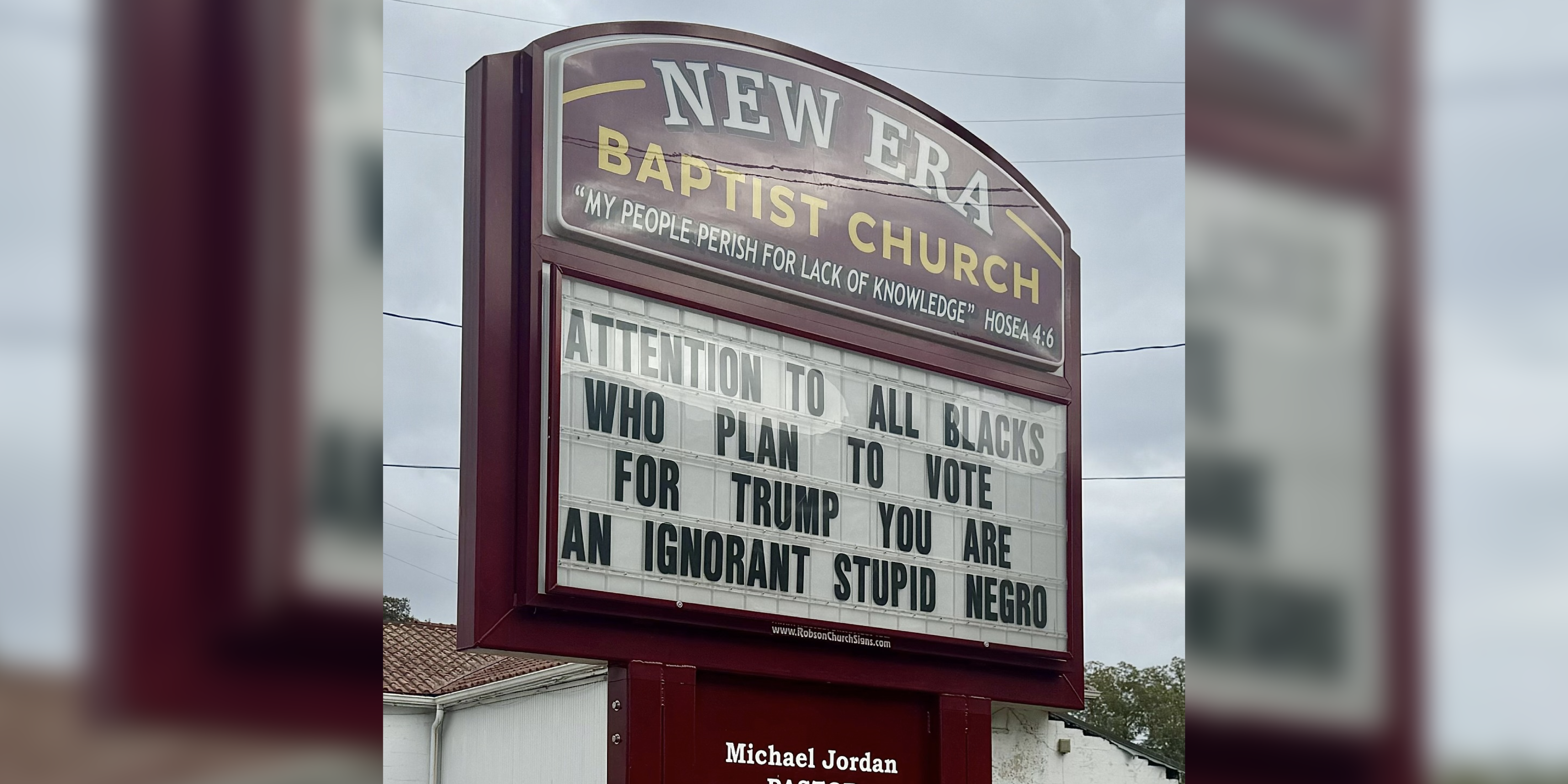
A Birmingham church, New Era Baptist, has ignited a firestorm ahead of the November 5 election with a provocative billboard targeting Black Trump supporters. The sign uses racially charged language, declaring, “A black vote for Trump is mental illness” on one side, and warning, “A vote for Trump will put black folks back to picking cotton” on the other.
Previously led by now-retired pastor Michael Jordan, the church has a history of controversial messaging. In 2018, it drew attention for opposing a white church's expansion into a Black neighborhood with signs claiming, “Black Folks Need to Stay Out of White Churches.
" This recent message continues the trend of uncompromising rhetoric that aims to provoke discussions within the community, though the church officials have not yet commented. As election day approaches, the signs raise questions about the intersection of race, politics, and community identity.
A West Palm Beach man, Nicholas Farley, has been arrested for allegedly intimidating voters at a polling site in Loxahatchee. The 30-year-old faces serious charges after reportedly hurling anti-Semitic and racial slurs while menacingly circling the parking lot in a white van.
Witnesses, including a young woman campaigning for a Republican candidate, described how Farley sped toward them while blasting derogatory music. This incident isn't an isolated one; Farley has a troubling history of racist aggression, including a prior arrest for brandishing a firearm at a biracial couple.
Despite claiming ignorance of early voting and expressing his "patriotism," deputies noted that he seemed to revel in his hate-filled rhetoric during his interrogation. Farley, now in jail, is facing up to 10 years in prison if convicted, shining a light on the alarming issue of voter intimidation and hate crimes in the community.
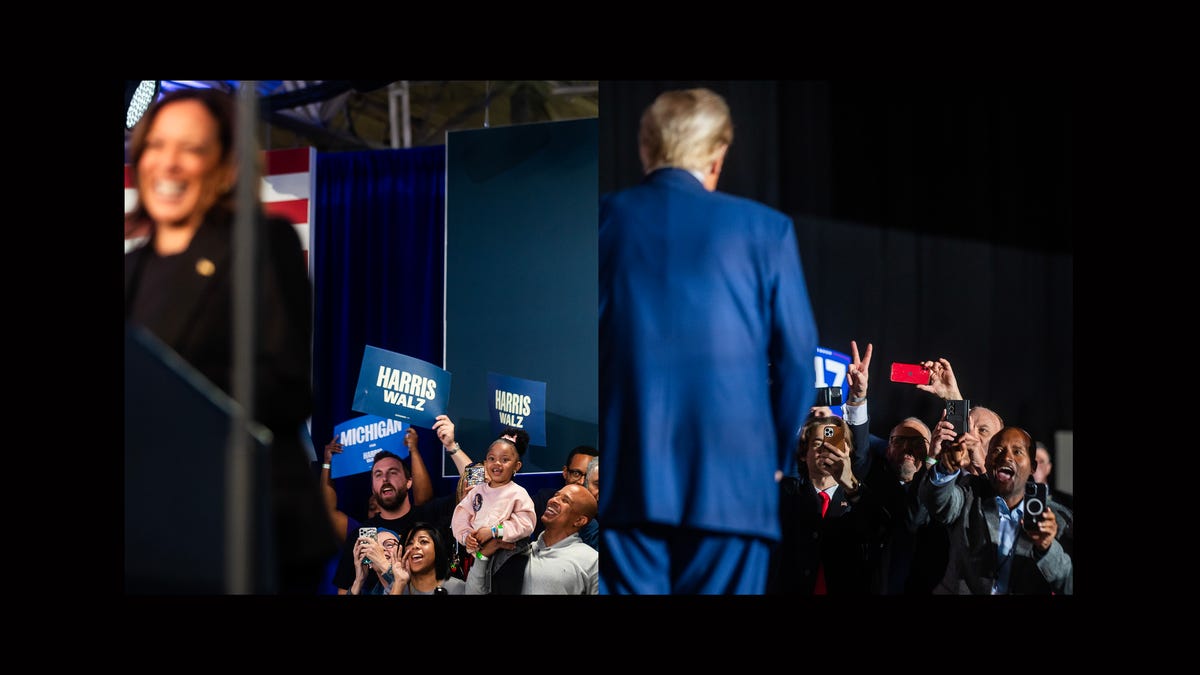
As the presidential race heats up, Michigan's Black men are becoming key players, capturing the attention of both Democratic Vice President Kamala Harris and former President Donald Trump. Amid voter engagement initiatives in Detroit, some young voters, like 20-year-old June Terrell, express skepticism about both candidates' ability to bring real change, feeling disillusioned by past elections.
Activists stress the importance of mobilizing Black male voters, noting a worrying trend of decreased support for Harris among this demographic compared to past elections. Despite the challenges, organizations like the NAACP and Black Voters Matter aim to boost turnout, fueled by a deep-rooted understanding of the issues affecting their communities.
With polls indicating a potential shift among Black men towards Trump, the outcome of the election may hang on whether candidates genuinely address and resonate with the unique concerns of these voters.
In the lead-up to the 2024 presidential election, a diverse group of voters in Charlottesville, Virginia, underscores a stark reality: America's future hinges on the choices made at the ballot box. As both Joe Biden and Donald Trump frame the election as a critical juncture for democracy, opinions reflect deep divides rooted in the city's tumultuous history, including the 2017 "Unite the Right" rally.
Voters share complex views shaped by personal experiences of racism, political polarization, and the haunting legacy of extremism. While some express fear over Trump's potential return, others argue that no matter who wins, much will remain the same.
Yet, a common thread emerges: the urgency for dialogue and understanding in a time of heightened tension. As citizens gear up to vote, their sentiments reveal a nation wrestling with its identity, grappling with the implications of their choices, and seeking a path forward amidst the turmoil.

